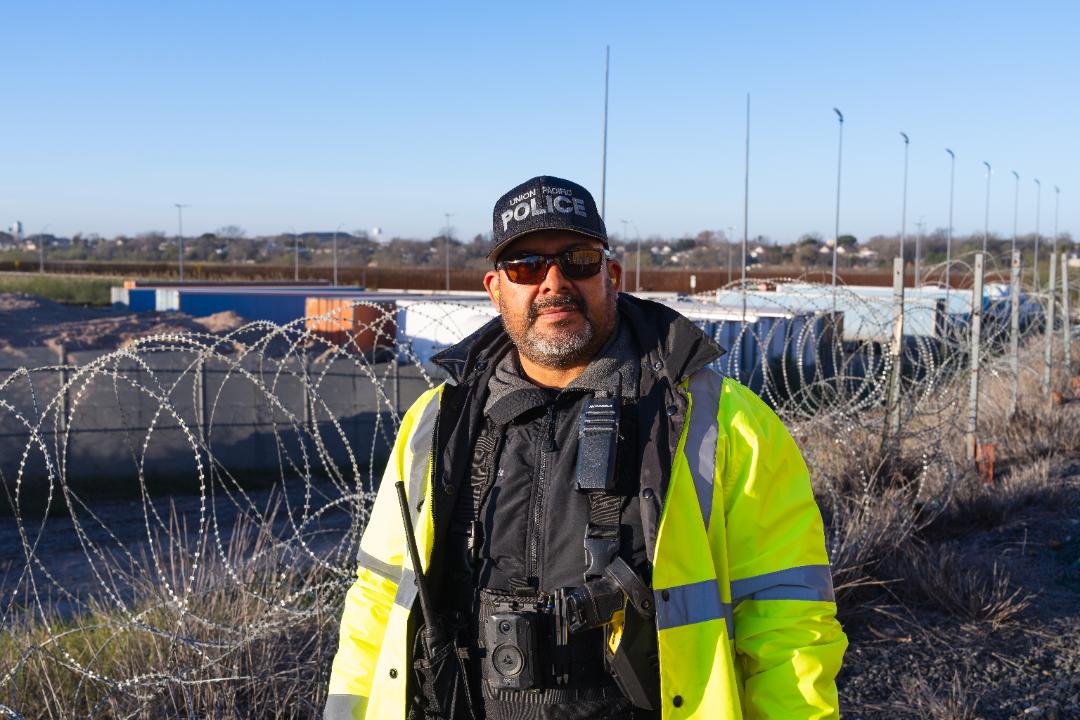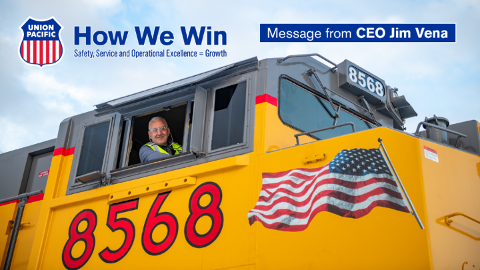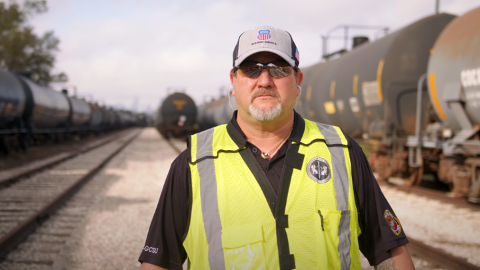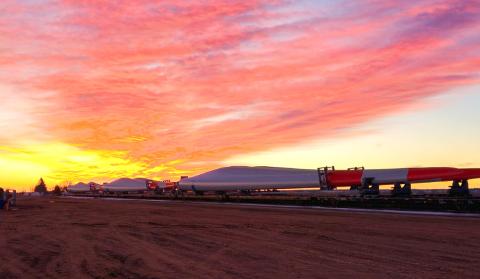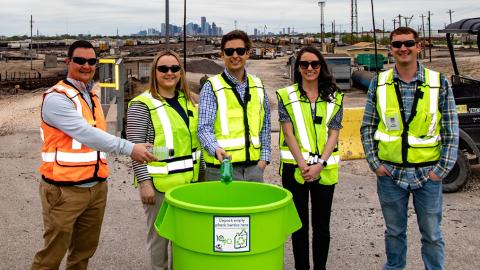At the start of every workday – typically around 5 a.m. – Union Pacific Senior Special Agent Danny Castaneda packs up his gear and heads to work in Eagle Pass, Texas, with his partner, a K-9 named Saar, in tow.
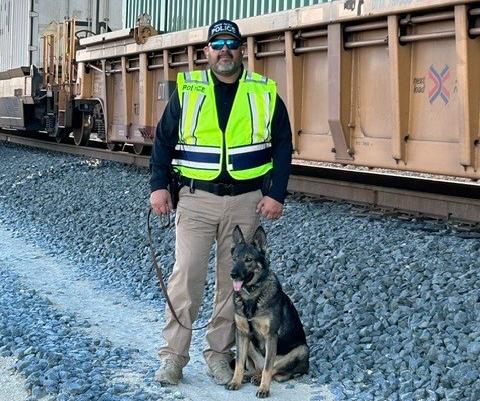
Castaneda and his K-9 partner, Saar.
Their mission every day is to help protect Union Pacific’s crucial rail network and customers’ goods traveling into the U.S. from Mexico.
The pair carefully inspects rail cars coming into the U.S., on the lookout for people, contraband and signs of missing goods.
“We walk the tracks, checking seals on containers and box cars,” Castaneda said. “It’s vital we try to catch as much as possible. Before I can even see something, Saar is already on alert, raising her head and leaning left and right as she picks up on the scent from the wind blowing in our direction. When she pulls harder, she’s on to something.”
Union Pacific serves six gateways into and out of Mexico, with the railroad investing billions annually to protect its rail network, including technology and resources to secure U.S. border crossings. Around 40% of all goods transported by Union Pacific originate or terminate outside of the U.S.
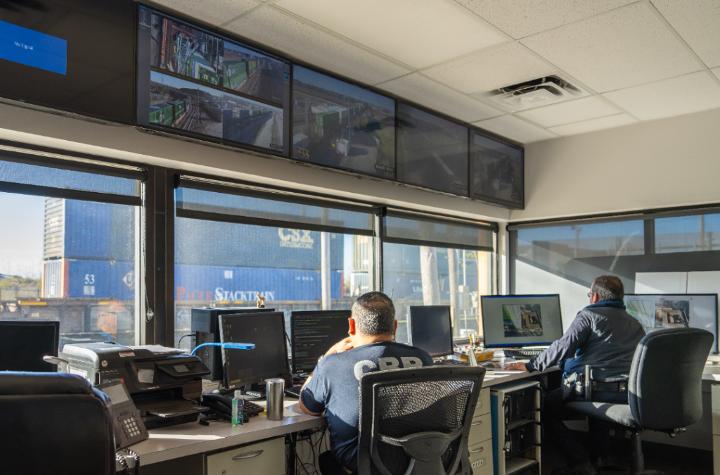
U.S. Customs & Border Protection employees inspect a Union Pacific intermodal train at the border.
Union Pacific uses an X-ray system to look for people and contraband as trains come into the U.S. across Union Pacific’s Eagle Pass railroad bridge above the Rio Grande River. Finding contraband before it makes its way into the country is critical to the safety and security of the railroad, its employees and the communities it serves.
“If the system detects a void or anomaly in a rail car, I’m alerted and will do a physical inspection,” Castaneda said. “Recently, we detected an intermodal container was missing about 10 catalytic converters. Discovering cases of theft at the border helps protect both the customer and Union Pacific.”
The railroad’s collaboration with the U.S. Customs & Border Protection and Texas Department of Public Safety is vital, Castaneda said.
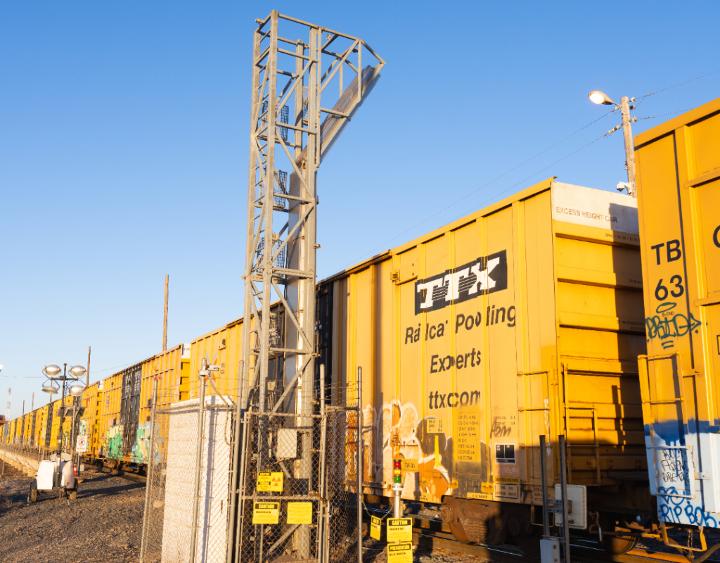
Security equipment and the area used to inspect trains coming across the border.
“Their presence is crucial to what we do on a daily basis,” he said. “They are consistently patrolling the tracks and helping us with anything we need.”
Castaneda, who grew up in Eagle Pass and became interested in law enforcement at a young age, knows the area like the back of his hand. Before joining Union Pacific eight years ago, he served as an Eagle Pass police officer, working the last several years on the Drug Enforcement Administration Narcotics Task Force. A friend referred him to Union Pacific.
“I like what the railroad is all about,” he said. “Everyone works well with each other and cooperates to get the job done. Everything runs very smoothly on our end.”
Did You Know: The railroad police force dates back to the mid-1800s, when the number of U.S. Marshals was insufficient to police America’s growing rail network. Railroad police are certified state law enforcement officers with investigative and arrest powers both on and off railroad property in most states. These agents investigate crimes involving trespassing on railroad rights of way, theft of railroad property and threats of terrorism.

